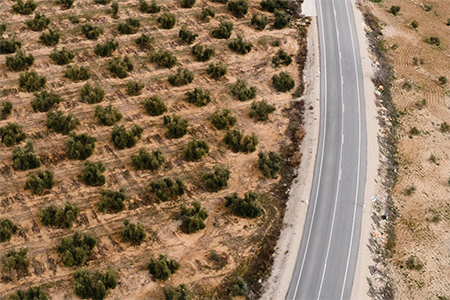
Author

Omar Sami
Attorney at Law (Germany) I Legal and Tax Consultant (UAE) I Managing Partner
Influencers Under Scrutiny by German Tax Authorities – What German Influencers in the UAE Should Consider. North Rhine-Westphalia is investigating professional social media personalities for alleged tax evasion, with other federal states following suit. Special focus: Influencers in Dubai.
I. Introduction
Influencers with commercial income are increasingly becoming the focus of tax investigations. In North Rhine-Westphalia, the State Office for Combating Financial Crime (LBF NRW) is currently examining 6,000 social media data sets. The estimated tax loss in that state alone amounts to approximately 300 million Euros. The investigations specifically target professional influencers, many of whom are based in Dubai, who have significant undeclared income. Hamburg and other federal states are now also intensifying their efforts.
In the course of ongoing investigations, it has become evident that influencers should carefully review the tax implications of their activities. Particularly for planned changes of residence, it is advisable to seek coordinated advice from lawyers and tax consultants at an early stage – both to avoid tax criminal risks and to ensure legally compliant and tax-optimized arrangements. Affected influencers also need to take action. This primarily involves a precise review of their tax circumstances, especially whether the Federal Republic of Germany actually retains tax sovereignty when the residence is abroad. In cases of undeclared taxes, a voluntary disclosure that grants immunity from prosecution is another available option.
II. The Investigations of the LBF NRW
Since January 2025, the newly established LBF NRW has been operating as the first specialized state authority of its kind in Germany. With approximately 1,200 investigators, it examines cases of potential tax crime in the digital realm. Central to the current measures is a newly formed “Influencer Team” that specifically targets economically successful content creators whose income from advertising deals, product placements, or gifts has been untaxed or only partially declared.
The accusation: Influencers officially relocate their residence abroad – preferably to Dubai – but continue to work from Germany. In doing so, they not only evade income tax liability but, in many cases, also trade tax and value-added tax. However, the evidence is often incomplete, as advertising content, particularly in so-called “stories,” disappears after 24 hours. Nevertheless, North Rhine-Westphalia is reported to have developed special investigation methods to track such short-term advertising campaigns. Other federal states are now adopting this approach.
Why Action Is Needed: In North Rhine-Westphalia alone, approximately 200 criminal proceedings are currently underway. Typically, these involve five-figure tax amounts per case – in individual instances, millions. Hamburg has also been specifically monitoring the industry since 2024, evaluating data from platforms and agencies. Further federal states have announced collaborations for cross-state investigations.
III. Summary
Digital income is subject to the same tax obligations as traditional commercial activities. All monetary benefits, including free products or covered travel expenses, are relevant for tax purposes. The authorities in North Rhine-Westphalia and Hamburg are currently setting standards for monitoring the social media industry and are increasingly being regarded as a model within the EU.
In North Rhine-Westphalia and Hamburg, a precise tax assessment is recommended for influencers, agencies, and advertising partners. Relocating residence to the UAE does not automatically provide protection from tax liability in Germany. Decisive factors remain, such as “key control” in Germany or the actual center of vital interests. A voluntary disclosure can lead to immunity from prosecution under certain conditions, provided it is complete and timely.
TME Legal Consultants






